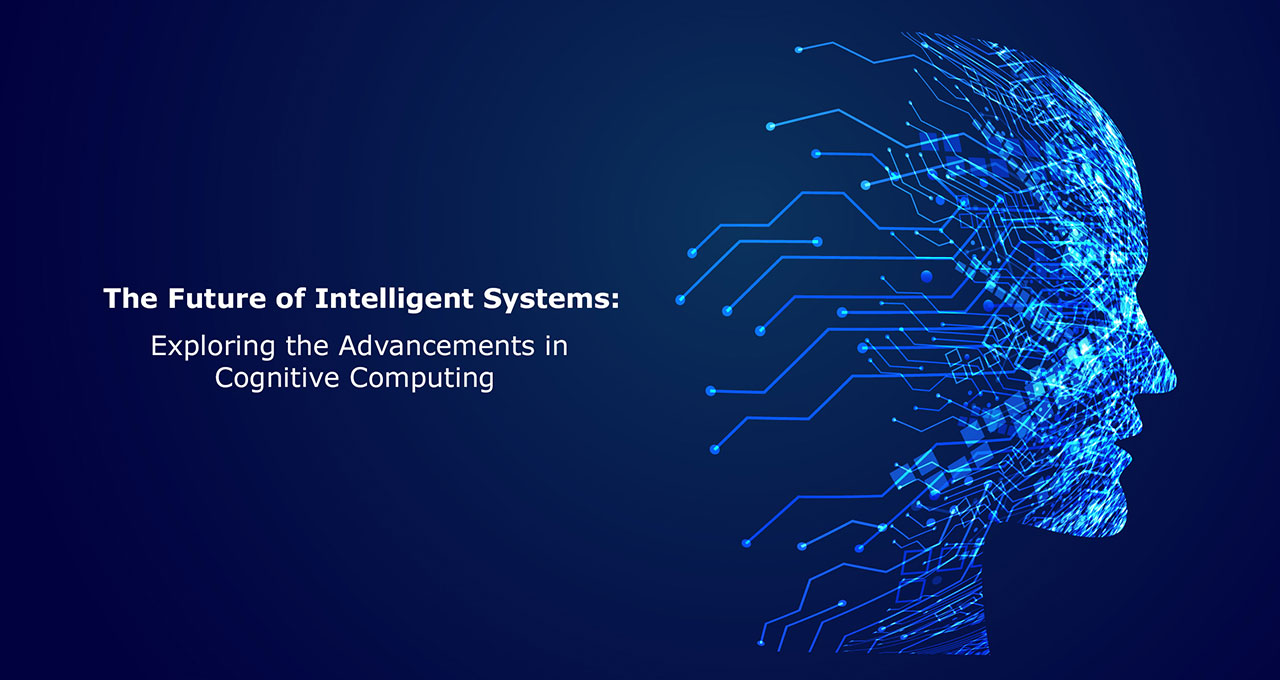
Image Credit: Image by starline on Freepik
As technology continues to advance at an exponential rate, intelligent systems have become increasingly prevalent in our daily lives. From Cortana and Alexa to self-driving cars and medical diagnosis systems, these cognitive computing systems have revolutionized the way we interact with technology and have transformed numerous industries. The future of intelligent systems is an exciting prospect, and in this blog, we will explore the advancements in cognitive computing that are shaping this future.
The history of cognitive computing dates back to the 1950s when computer scientist John McCarthy coined the term “artificial intelligence (AI).” Cognitive computing is a technology that enables machines to simulate the human thought process. It combines techniques from artificial intelligence, machine learning, natural language processing, and computer vision to create systems that can learn, reason, and understand the way humans do.
The potential of these advancements is enormous, but there are also ethical considerations that must be addressed. Privacy concerns arise when intelligent systems process personal data. There are also issues of transparency in decision-making and bias in algorithms, which can have unintended consequences.
Advancements in cognitive computing
The advancements in cognitive computing are vast, and the possibilities for its applications are endless. Some of the most exciting developments in cognitive computing include:
Natural Language Processing (NLP): NLP is a subset of artificial intelligence that focuses on enabling machines to understand, interpret, and generate human language. As NLP technology continues to advance, we are moving closer to creating machines that can understand and respond to natural language, just as humans do.
Deep Learning: Deep learning is a subset of machine learning that uses neural networks to analyze and learn from large datasets. It has already had significant applications in areas such as image recognition and speech recognition, and its potential for further advancements is enormous.
Computer Vision: Computer vision is a field of artificial intelligence that focuses on enabling machines to interpret visual information. It has already had significant applications in areas such as autonomous vehicles and facial recognition technology.
The Internet of Things (IoT): IoT is a network of interconnected devices that can communicate with each other and share data. Cognitive computing can enable IoT devices to process this data in real-time and provide insights that can drive operational efficiencies and improve customer experiences.
Overall, the advancements in cognitive computing have the potential to revolutionize the way businesses operate, and the way people live and work. There are challenges, but with appropriate safeguards and regulations, the benefits could be significant.
Real-world applications of cognitive computing
The advancements in cognitive computing have impacted several industries, including healthcare, finance, and customer service, to name a few.
In healthcare, cognitive computing has become a game-changer with its ability to analyze vast amounts of patient data and provide advanced diagnosis and treatment. Through machine learning and natural language processing, healthcare professionals can predict patient outcomes accurately, enabling them to deliver personalized care. The integration of cognitive computing into healthcare systems has also revolutionized the way patients access medical services, reducing waiting times and minimizing the chances of medical errors.
In finance, cognitive computing has transformed how financial institutions operate, from predicting market trends, optimizing investment portfolios, to providing personalized investment advice. The technology enables banks and other financial institutions to process large volumes of data at an unprecedented speed while enhancing security measures to protect customer data.
In marketing, cognitive computing is helping marketers better understand consumer behavior and preferences, allowing them to develop more effective strategies for reaching their target audience. By using NLP and AI, marketers can quickly identify trends in consumer behavior and create detailed customer profiles that enable them to deliver personalized experiences. This technology is revolutionizing the way marketing teams work, making it easier for them to reach out to potential customers in a timely manner.
Customer service is another sector that has seen the practical implications of cognitive computing, from chatbots, predictive analytics, and recommendation engines to sentiment analysis. These applications of cognitive computing enable businesses to offer personalized customer experiences and reduce response times. This results in increased customer satisfaction rates while enabling businesses to streamline their operations.
The real-world applications of cognitive computing are indeed vast, and it is clear that the technology’s potential is limitless. However, as these systems continue to evolve, it is essential that ethical considerations are taken into account, such as privacy concerns, transparency in decision-making, and bias in algorithms. These considerations will ensure that cognitive computing continues to benefit society in a positive way.
Ethical considerations
As with any technology, cognitive computing raises ethical considerations. One of the biggest concerns is privacy. Intelligent systems gather vast amounts of data from users, which could potentially be accessed by third parties. The implications of this are particularly worrying when it comes to sensitive information such as medical records.
Transparency in decision-making is another issue. Some systems use complex algorithms to make decisions, and it’s not always clear how those decisions are being made. Without transparency, it’s difficult to know if the system is making fair and unbiased decisions.
Bias in algorithms is also a significant concern. Machine learning algorithms are only as good as the data they’re trained on, and that data isn’t always unbiased. If the data is biased, the algorithm will also be biased. This raises serious concerns when it comes to decision-making in areas such as criminal justice.
While these ethical considerations are significant, they’re not insurmountable. It’s possible to design intelligent systems that respect user privacy, are transparent in their decision-making, and minimize bias. As companies continue to develop intelligent systems, it’s important that they do so in a responsible and ethical manner.
But let’s be real – who among us hasn’t been creeped out by a targeted ad that somehow knows exactly what we’ve been talking about? As much as we may value privacy, there’s something undeniably convenient about intelligent systems that can anticipate our needs. Ultimately, the key to the ethical use of intelligent systems is finding a balance between convenience and privacy.
Future of intelligent systems
Despite these concerns, the potential benefits of cognitive computing are enormous, and the future of intelligent systems is an exciting prospect. Here are some of the key areas where we can expect to see significant advancements in the coming years:
Personalization: As cognitive computing systems become more capable of understanding individual preferences and behaviors, we can expect to see more personalized experiences in areas such as entertainment, advertising, and healthcare.
Augmented Reality: Augmented reality (AR) is a technology that combines computer-generated images with real-world environments. As cognitive computing systems become more capable of understanding and interpreting visual information, we can expect to see more advanced AR applications in areas such as gaming, education, and training.
Quantum Computing: Quantum computing is a technology that uses quantum mechanics to perform computations that are beyond the capabilities of classical computers. As cognitive computing systems become more advanced, we can expect to see more significant advancements in quantum computing, which could have implications for areas such as cryptography, drug discovery, and climate modeling.
Conclusion
In the near future, intelligent systems will become an ubiquitous part of our daily lives. They will help us make informed decisions, improve our productivity, and enhance our quality of life. The potential of cognitive computing is immense, but it also comes with ethical considerations ensuring that they are trained on diverse and representative datasets to avoid bias and ensure that they can make accurate and fair decisions.
As we move forward, humans will have an important role to play in shaping the direction of intelligent systems. With the right approach, we can leverage the power of these systems to build a better future for everyone. Let’s embrace the opportunities and overcome the challenges that lie ahead.

